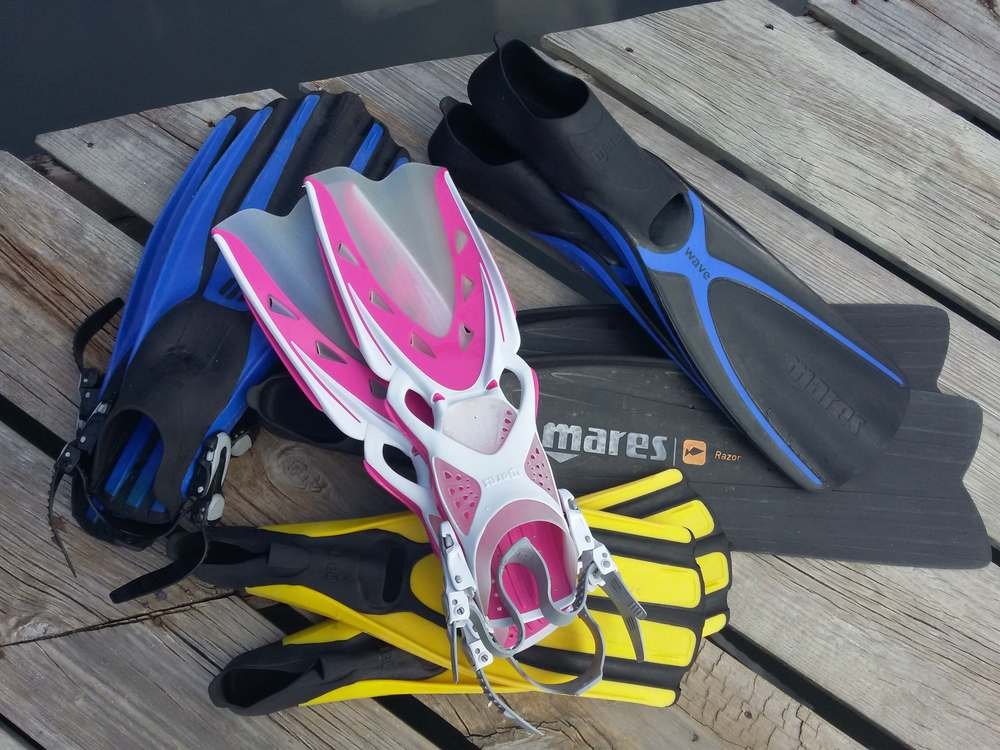Choosing the right diving fins is essential for a comfortable and efficient underwater experience. The right pair of fins can significantly enhance your propulsion, maneuverability, and overall diving enjoyment. This guide will help you understand the key factors to consider when selecting diving fins, ensuring you make an informed decision suited to your diving needs.
1. Consider Your Diving Style
Your choice of fins should align with the type of diving you plan to do:
- Recreational Diving: Look for general-purpose fins that offer a balance between power and comfort.
- Technical Diving: Opt for fins designed to handle heavy gear and strong currents, providing more power and durability.
- Snorkeling: Choose lightweight, easy-to-use fins suitable for surface swimming.
- Freediving: Select long fins for maximum propulsion with minimal effort.
2. Types of Fins
Different types of fins cater to various diving needs:
- Full Foot Fins: Cover the entire foot and are best suited for warm water diving. They are usually more comfortable for barefoot use.
- Open Heel Fins: These are used with booties and are preferred for cold water diving, offering better thermal protection and adjustability.
- Split Fins: Designed to reduce resistance and effort, making them ideal for divers seeking ease of kicking.
- Paddle Fins: Traditional fins that provide good power and control in various conditions.
3. Blade Length and Stiffness
The length and stiffness of the fin blades affect their performance:
- Blade Length: Longer blades provide more power and efficiency, suitable for strong swimmers and deep dives. Shorter blades are easier to maneuver and are ideal for casual or beginner divers.
- Blade Stiffness: Stiffer blades offer more propulsion but can be tiring for the legs. Softer blades are easier to kick but provide less power.
4. Material
The material of the fins influences their weight, flexibility, and durability:
- Rubber: Durable and offers good propulsion, but can be heavier.
- Plastic: Lightweight and affordable, suitable for beginners.
- Composite Materials: Combine different materials to enhance performance, such as carbon fiber for advanced divers looking for superior efficiency and strength.
5. Fit and Comfort
Ensuring a good fit is crucial for comfort and efficiency:
- Snug Fit: Fins should fit snugly without being too tight. For open heel fins, make sure to use booties for a proper fit.
- Adjustable Straps and Buckles: Look for fins with adjustable straps or buckles to ensure a secure and comfortable fit.
6. Weight and Buoyancy
The weight and buoyancy of fins can affect your diving experience:
- Lightweight Fins: Easier to pack and travel with, and less tiring to use.
- Negative Buoyancy Fins: Sink in water, useful for technical diving to help with trim.
- Neutral or Positive Buoyancy Fins: Float or remain neutral in water, helpful for reducing leg fatigue.
7. Water Conditions
Consider the typical water conditions where you will be diving:
- Calm Waters: Flexible, soft fins are sufficient.
- Strong Currents: Stiffer, more robust fins provide better propulsion.
8. Budget
Set a budget and compare options within your range. While higher-end fins offer better materials and performance, there are plenty of good-quality, affordable options available.
9. Brand and Reviews
Research reputable brands known for quality and durability. Read reviews and ask for recommendations from experienced divers or instructors to gain insights into the best options.
10. Try Before You Buy
If possible, try on different fins at a dive shop or during a dive trip. Renting or borrowing various types can help you determine the best fit and style for your needs.
Conclusion
Choosing the right diving fins involves considering your diving style, water conditions, and personal preferences. Prioritize comfort, fit, and the appropriate type of fin for your diving activities to ensure an enjoyable and efficient underwater experience. With the right pair of fins, you’ll be ready to explore the underwater world with ease and confidence.



